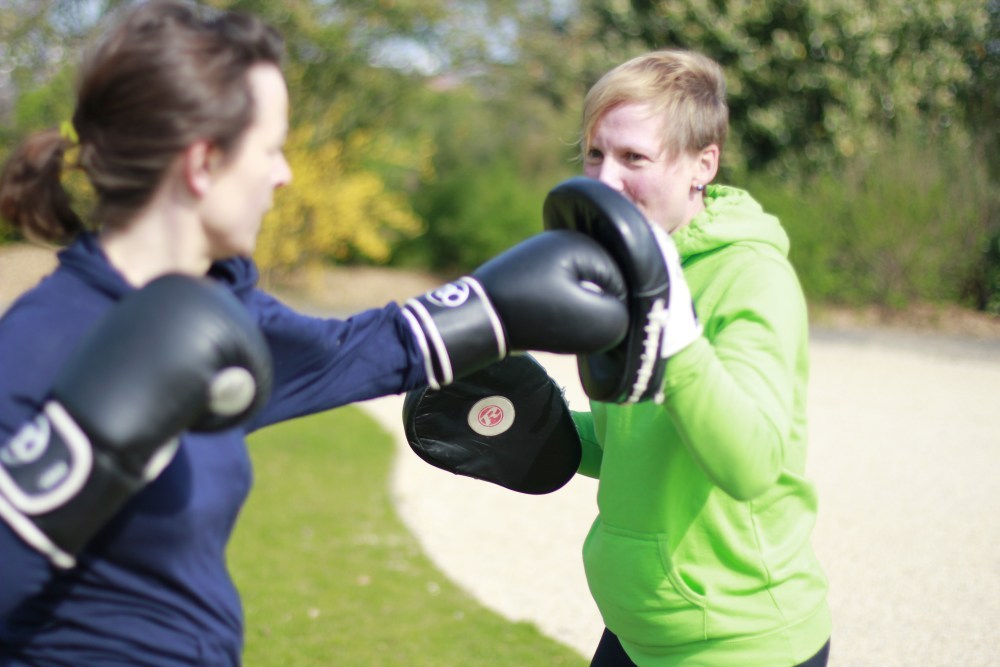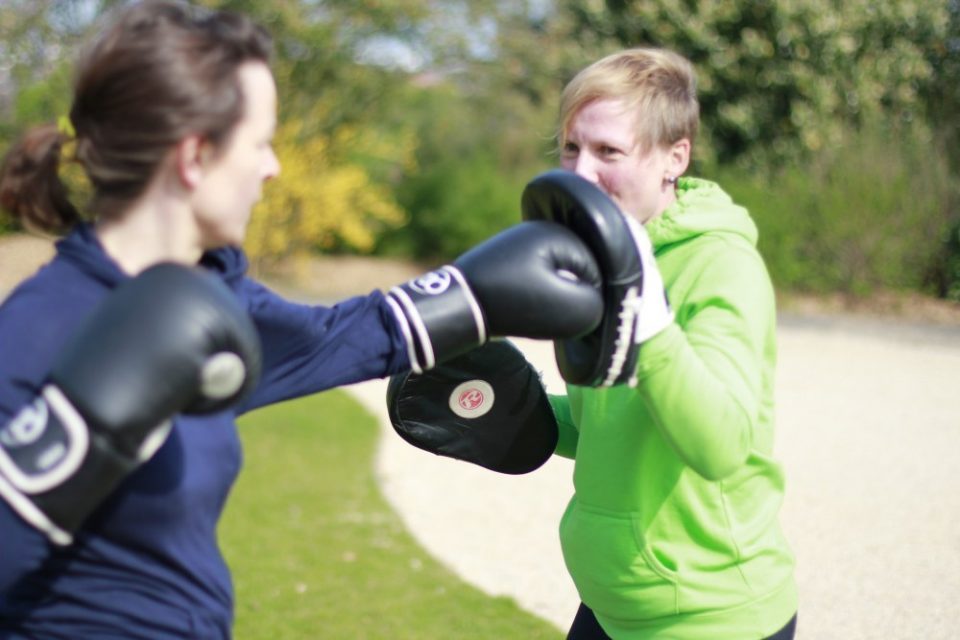
A big part of the Bodyshot philosophy is that no one thing is truly effective; a successful health and wellbeing program requires a holistic view. We believe there are six areas of health, fitness and nutrition that need to be addressed – we call these the Six Signals™:
- Sleep
- Mental health
- Body composition
- Fitness
- Digestive health
- Energy
Focusing on one or a few of these areas will have some benefit, but to achieve the results you want, all the Six Signals™ need to be considered.
Now, there are a few myths that prevail in the health and fitness industry, (I talk about a few of them in my TEDx talk ‘Why fitness is more important than weight’), but in my opinion, one of the most damaging myths is the belief that exercise alone will help you lose weight. It’s a very important part of an overall health plan, and the benefits of exercise are huge (more on that later), but there are some very good reasons why it isn’t an effective way to lose weight if that’s one of your goals.
Here are my five top reasons why exercise isn’t an effective way to lose weight:
The body adapts quickly to exercise
In a 2016 study called Constrained Total Energy Expenditure and Metabolic Adaptation to Physical Activity in Adult Humans, it was discovered that activity intensity is inversely related to energy expenditure. In other words, as you start to exercise at higher intensities, the amount of energy you expend decreases. This might sound odd, but the human body is remarkably resilient, and adapts quickly, especially to aerobic or cardiovascular (CV) exercise. It can take as little as 2 weeks to adapt to CV exercise (for example jogging), but 4-6 weeks for strength training like weight lifting. You might get good results in the first few weeks, but once your body has adapted, you’ll quite quickly plateau. The upshot is, if you’re relying on exercise to continually burn the same number of calories each session, it won’t.
You can’t out-train a bad diet
If you aren’t eating a good diet, at best you can hope to maintain the same weight once you start exercising. A good diet means this: a balance of macronutrients (carbohydrates, fats and proteins); a good blend of micronutrients (vitamins and minerals); plenty of water; lots of vegetables and a few fruits; no refined carbohydrates or processed foods; minimal sugar. The most effective way to do this is eat a predominantly plant-based diet with meat or fish twice a week, with plenty of water and only the occasional sugary snack or processed food item. It is not possible to do enough exercise to stave off the ill effects of a bad diet, and you’ll probably just add over-training to your list of woes if you try.
The calories burned from exercise might be less than you think
One of the common mistakes people make when starting an exercise program is overestimating the number of calories they’re burning, even when they perceive themselves to be working hard. Typically, if you’re running or jogging (the speed doesn’t matter), you’ll burn approximately 100 calories per mile. On that basis, a 5K run will burn roughly 350 calories, a 10K 700 calories, and so on. To put that in context, a Lucozade sports drink contains 140 calories and a whopping 18g of sugar. (Message: you don’t need sports drinks unless you’re doing over 90 minutes of moderate intensity exercise, and even then, it’s best to dilute it with 50% water). If you treat yourself to a latte after you’ve done the 5K run, that’s about 135 calories, so you’ve only burned 215 calories. Maybe you don’t care about that, but many people are surprised at how few calories are burned in exercise and how easy it is to put them back on.
Studies show that people tend to eat more after exercise
In a 2011 study, it was found that participants tended to eat more after exercise than they would have done otherwise. It is believed this is because challenging bouts of exercise cause massive neural activity upticks in brain regions responsible for food reward and craving, There’s also the ‘treat theory’, which is where a person convinces themselves they deserve the treat or have earned it. Possibly not unfair, but in some instances you might actually be consuming more calories than you’ve burned or more calories than you would have consumed if you didn’t exercise. There is an argument that if you’ve done enough physically demanding exercise then your body will crave food as it endeavours to replace the lost energy, but the art is understanding what is a legitimate food signal and what’s an emotional desire to eat.
The effectiveness of exercise depends on how you blend it with general movement
Humans were designed to move all day at different intensities, not blast ourselves with 60 minutes of moderate to high intensity exercise and then sit still all day. That is essentially what many of us do, and certainly what I used to do when I was a corporate worker. This is better than doing nothing at all – but according to studies, only marginally – but the best way to maintain a decent calorie burn to support your weight loss efforts is to be moving – a lot. If your job is a desk job, get up every hour and move. Walk wherever you can – a few steps here and a few there all add up. Take the stairs where you can. Walk to someone’s desk rather than email. Just move, wherever possible and as much as possible. Isolated exercise sessions will not help you lose weight, but combined with a general strategy to move and be as active as possible during the day will make a difference.
All that said, there are a huge number of benefits to exercise. I wouldn’t be without it – it makes a massive difference to my wellbeing and helps me to be more mentally, physically and emotionally resilient. These benefits include:
- Mental health and resilience
- Cardiovascular health
- Mitochondrial health
- Strong bones and joints
- Strong respiratory health
- Improved blood flow to the body
- Reduced risk of disease
- Good hormonal balance
- It’s fun and sociable
- It’s what we were designed for
If you’re interested in finding out what your Health IQ is, click here to take our short quiz and book your free 15 minute consultation with one of our Health Experts.
Leanne Spencer is an entrepreneur, coach, TEDx Speaker, author of Remove the Guesswork, and founder of Bodyshot Performance Limited. Bodyshot is a health and fitness consultancy that helps busy professionals get more energy by removing the guesswork around their health, fitness and nutrition. Visit www.bodyshotperformance.com or email info@bodyshotperformance.com to register your interest in our services and connect with us on Facebook, Instagram and Twitter.


